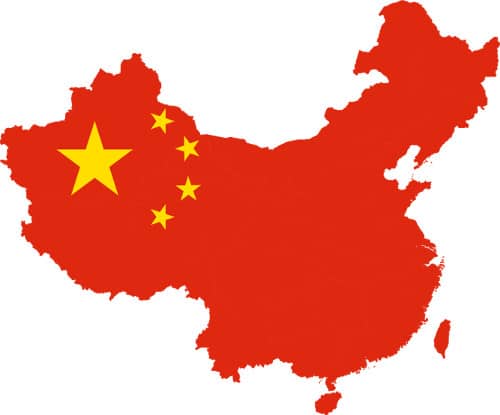Ecommerce in China: insights and best practices
19/02/15
2'
Today, millions of people will celebrate the Chinese New Year, a celebration in not only China, but in Chinese communities around the world. The festive period, characterised by family time and gift giving, also marks a peak in ecommerce activity.

Key stats for Chinese ecommerce
The rise of ecommerce in China has been impossible to ignore. Propelled thanks to quick delivery and mobile payment, the sector has boomed in the country, accumulating $295 billion in online retail sales in 2013, despite the fact that China’s broadband penetration is only 30%.
By 2018 Chinese ecommerce is expected to exceed $1 trillion, thus accounting for 40% of ecommerce worldwide.
The country represents a huge opportunity for emerchants!
Read also: Lengow wins Best Cross-Border E-commerce Solution Award
Marketplaces in china
Alibaba is China’s, and by some standards, the worlds, biggest ecommerce company. Its marketplaces, Taobao and Tmall, account for the majority of the ecommerce market, however, ecommerce platforms such as YHD.com and JD.com are starting to gain more market share.
The Chinese counterparts of eBay and Amazon give online retailers the opportunity to take advantage of a central website which already has a huge qualified traffic flow.
Read also: Tmall plans to grow its marketplace globally in 2015

Mcommerce
Do not under estimate the power of mobile! Mainland China has over 700 million smartphone users, so make sure your site is optimised for viewing and payment on a mobile device.
Purchases made via mobile are predicted to triple by 2018, so this is definitely not a trend to be overlooked! Overseas companies need to develop a strong mobile strategy in order to relevant in China’s growing mcommerce market.
What are the Chinese buying online?
According to a report by Nielsen, 32% of Chinese consumers have purchased international goods online. Apparel, accessories and handbags (43%) are the top categories for international purchases, followed closely by personal care products and cosmetics (41%) and then mother-and-baby goods (30%).
According to the same report the luxury sector is also a top sector for online purchases.

Appealing to Chinese shoppers
It is important to create an online community around your brand using social media platforms. Chinese shoppers are more probable to purchase items recommended by other users on social networks. WeChat, Sina Weibo and Qzone are considered some of the most important social networks in China.
Take into account special dates and holidays in China. In addition to the Chinese New Year, Singles Day is also a huge occasion for ecommerce. In 2013, the celebration, which takes place on 11th November, tripled the amount of Cyber Monday revenues in the US.
Make sure your store is ready for these dates and plan your strategy well in advance, so you are able to take advantage of the opportunities they offer in terms of ecommerce.
Your e-commerce library
Clarins x NetMonitor Success Story
Learn moreSuccess on Marketplaces
Learn moreCompetitive Intelligence
Learn moreSign up for our newsletter
By submitting this form you authorize Lengow to process your data for the purpose of sending you Lengow newsletters . You have the right to access, rectify and delete this data, to oppose its processing, to limit its use, to render it portable and to define the guidelines relating to its fate in the event of death. You can exercise these rights at any time by writing to dpo@lengow.com

Trending Posts
Marketplaces
The Top 10 Marketplaces in Europe (2026)
The e-commerce scene is a vibrant mix of marketplaces in Europe. These aren't just websites; they're bustling hubs where millions…
02/01/26
8'
Marketing channels
ChatGPT Ads and advertising on GenAI Search Engines: what you need to know
Advertising on generative AI-based search engines (GenAI) marks a new era in digital marketing. After two decades dominated by traditional…
18/01/26
8'
Marketplaces
The French Marketplace Landscape: What Brands Need to Know
France has quietly become Europe's marketplace laboratory. Lengow's exclusive ranking reveals why traditional retailers, not tech giants, dominate the game.…
08/01/26
6'
E-commerce Trends
Google’s Universal Commerce Protocol: The End of E-Commerce as We Know It?
On January 11, 2026, at the NRF Retail's Big Show in New York, Google unveiled the Universal Commerce Protocol (UCP),…
16/01/26
6'
Marketing channels
What the World Is Unboxing on TikTok and Instagram (Haul & Unboxing Index 2025)
Opening a package on camera has become much more than simple entertainment. In 2026, "haul" and "unboxing" videos serve as…
20/01/26
7'




